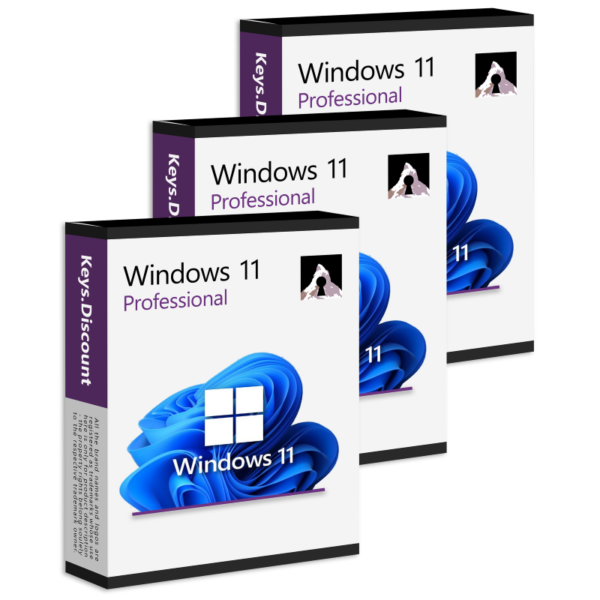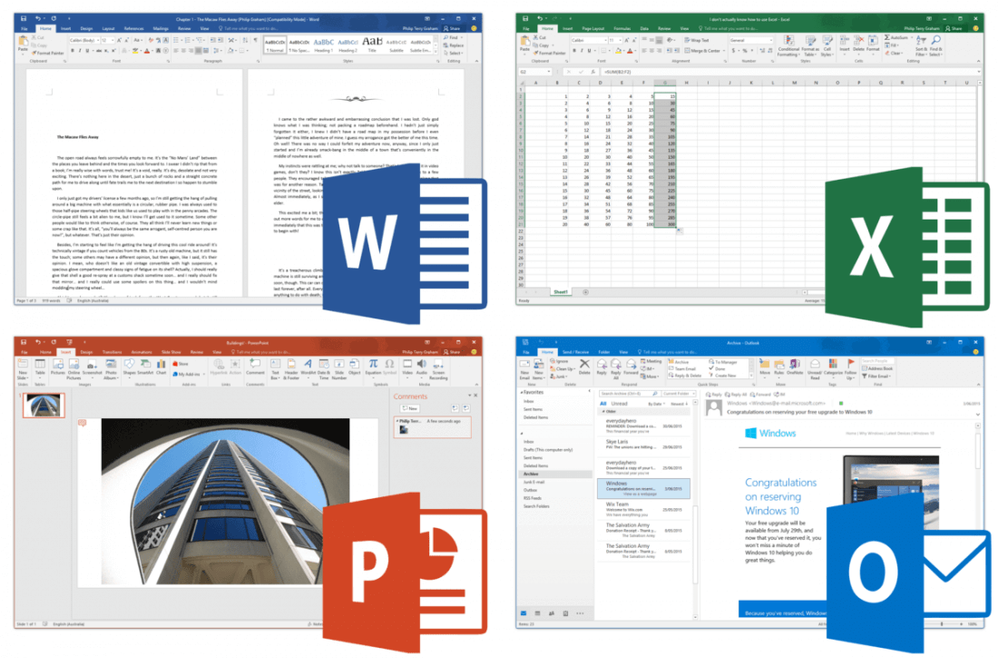Best Guide For Choosing Windows Microsoft Office Pro Activation Websites
Wiki Article
Top 10 Tips For Buying Windows Pro/Home Home Products At "Too Good To Be True" Prices
It's not unusual to find "too-good-to be true" prices when you purchase Windows 10/11 Pro and Home license key or activation keys for the product. These deals may be tempting but they are usually accompanied by concealed dangers. Here are 10 tips to help you avoid scams and other issues which could arise due to cheap prices.
1. Compare to Official Pricing
You can visit the Microsoft Store or other reliable retailers, like Amazon or Best Buy to get an estimate of the price on the market.
Significant discounts (over 50% off) over the regular cost could indicate that a key that has been stolen, copyright or is not genuine.
2. Understand typical price ranges
Windows 10/11 keys are typically priced between $100-140 dollars.
Windows 10/11 Pro keys cost anywhere between 140 to 200 dollars. It is not recommended to purchase anything below the cost ranges.
3. Suspiciously low prices are often indicative of illegal sources
Keys sold at costs like $5, $20, or even $10 are most likely acquired through illegal or unethical methods.
The stolen items were from reputable sources
Obtained through volume licensing which is not authorized.
The software used to generate this product is an infringement.
Microsoft may suspend your account, trigger legal trouble or stop providing support if you purchase these keys.
4. Avoid "Lifetime Activation" Guarantees
Be cautious if a seller is offering keys that are "lifetime activation", but at an unusually low price. Keys that bypass Microsoft's normal activate procedures. This can cause issues with updates, or if Microsoft finds out that a bypass was made.
5. Check Credibility and Reputation of the Seller
If a seller is offering keys at a huge discount, verify their credibility by reading reviews from customers and ratings as well as their the past. A trustworthy seller will have a strong track record with detailed positive reviews.
Sellers who do not have a good reputation or who have a large amount of negative reviews are more likely to be copyright keys.
6. Beware of Sites Known as "Gray Market" Keys
Certain platforms, such as Kinguin G2A CDKeys or CDKeys are known for selling cheap keys which aren't always legal and not supported by Microsoft. Even if you discover offers that appear legitimate, they could be scams.
If you're using these sites, be sure the program offers strong protection for buyers.
7. A Warning Sign means there is no Warranty or Support
Official retailers will usually provide warranty and customer support for their software products. Keys that are sold at a low price rarely provide any support or warranty, which may indicate an issue with their legitimacy.
You may have no recourse if you experience activation issues with unauthorised sellers.
8. Watch out for "Digital only" sales that aren't supported by trusted platforms
Many scammers sell "digital only" Windows keys for a low price via websites or email without using reputable e-commerce websites.
Buy digital-only licenses only through platforms with a demonstrated track record in software sales.
9. Volume License Keys are Not For Individuals
Some sellers might offer cheep keys in the name of the Volume License, claiming it's legal to use for personal purposes. Volume licenses are only for organizations, schools, and government organizations.
If you purchase the VL key for an individual is not just in violation of Microsoft's policies, but it is also a risk since Microsoft could deactivate it at any time.
10. Verify if there are any deviations from standard procedure of activation steps.
Be cautious if a seller offers you a complicated procedure for activation, such as using a specific phone number, software from a third party or manual steps. Genuine Windows Keys can be easily activated through the system or copyright.
Standard activation requires you to enter an activation key during the installation process. You can also log in using your copyright.
A quick summary of warnings
Low prices that are well below market rates.
Sellers who do not have a name.
The sales of "digital-only" products with little support or transparency.
Claimant claims of "lifetime Activation" or non-transferable Keys.
Microsoft does not support complex or manually-activated activation steps.
You can stay clear of the "too-good-to be true" trap by following these guidelines and ensuring that your Windows key lasts. Have a look at the most popular windows activation key 10 for blog recommendations including windows 10 pro product key, Windows 11 activation key, buy windows 10 product key, windows 11 activation key home, windows 10 pro product key for buying windows 11, windows 10 pro cd key, windows 10 pro product key buy, windows 11 pro license key, windows 11 license, registration key for windows 10 and more.

Top 10 Tips On The Type Of License Type When Buying Microsoft Office Professional Plus 2019/2021/2024
If you're considering purchasing Microsoft Office Professional Plus 2019 2020, 2024, or 2030 it is essential to understand the different kinds of licenses so that you can ensure that you get the best one for your requirements. Different licenses have different terms as well as support options and restrictions. These are the top 10 suggestions to help you navigate the different types of licenses:
1. The most common kinds of licenses
Microsoft Office Professional Plus comes in three different license types: Retail, OEM (Original Equipment Manufacture), and Volume Licensing. Each license comes with different terms, conditions and restrictions.
Retail: A one-time purchase that's typically associated with a single user. Transferable to a different device (within one user).
OEM It is a device that can be only installed on the original device. It is not transferable. It is usually less expensive, but not as adaptable.
Volume Licensing is ideal for educational institutions or businesses providing a flexible solution to several users.
2. Retail Licenses that are Flexible
Retail licenses offer the greatest flexibility. This allows you to install Office onto your device, and then transfer the license once you upgrade your PC. This is the most suitable option for individuals who might upgrade their hardware at some point or move devices.
3. OEM Licenses at Lower Cost
OEM licenses are generally less expensive but they are tied to a specific device and are not transferable. They're designed for computers that are pre-installed with Office from the manufacturer. OEM licensing could save you the cost of customizing your PC however it can limit your flexibility.
4. Understanding Volume Licensing
The option of volume licensing is ideal for companies, educational institutions as well as government agencies. This may be your most economical option if you're buying Office for multiple devices or users. It provides many advantages such as central management and more efficient deployment.
5. Multiple Device Licenses Multiple Device Licenses
Retail licenses generally will cover a single device (e.g. laptops and desktops), whereas Volume Licenses can cover hundreds or even thousands, based on the contract. Be aware of how many computers the license covers before buying.
6. Check for License Transferability
Retail licenses can be transferred from one device to the next (as as they've been removed from the device before) However, OEM licenses cannot be transferred. This is a critical consideration if you plan to change computers frequently.
7. Take a look at the User Licenses and Consider Device Licenses
Some licenses are assigned to individuals, whereas others are allocated to devices. If you're purchasing Office for a person who will use Office on multiple devices, consider user-based licensing options like the ones included in Microsoft 365 subscriptions and Volume Licensing.
8. Review Support and Updates
Microsoft offers regular updates and full support for Volume Licenses and Retail Licenses. OEM licenses may provide limited or no support. They might also be unable to receive regular updates if the device they're tied to ceases to be supported by the manufacturer.
9. Know the importance of licensing upgrades
You could be entitled to the upgrade of Office to the latest version with an Volume License, Retail License or the Microsoft Software Assurance Program (for Volume Licensing).
OEM licenses typically don't provide any upgrade rights, which means you'll need to purchase an additional license if you want to upgrade to a different version of Office.
10. Examine the terms of the License Agreement
Microsoft will give you an agreement for licensing when you buy any version of Office Professional Plus. These terms include any restrictions or guidelines regarding the transfer of software or the rights to use it for specific devices or for specific purposes (e.g. for business or for personal use). Knowing the terms will keep your from being caught off guard by unanticipated limitations.
Conclusion
The best type of license for Microsoft Office Professional Plus 2019 2024, 2021, or 2021 depends on your specific needs--whether you're an individual, firm or an institution. Knowing the distinctions between Retail Licensing, OEM Licensing, and Volume Licensing can help you make an educated decision that is dependent on price as well as the flexibility and support, scalability and many other aspects. Verify the licensing terms and make sure that you're purchasing the correct version. Have a look at the recommended Microsoft office 2024 release date for blog examples including Office 2021 key, Office 2019, Office 2019 professional plus, Microsoft office 2024 release date, Microsoft office 2021 for Microsoft office 2021 professional plus Microsoft office 2024, Ms office 2021, Ms office 2021 pro plus, Microsoft office 2024, Microsoft office 2019 and more.
